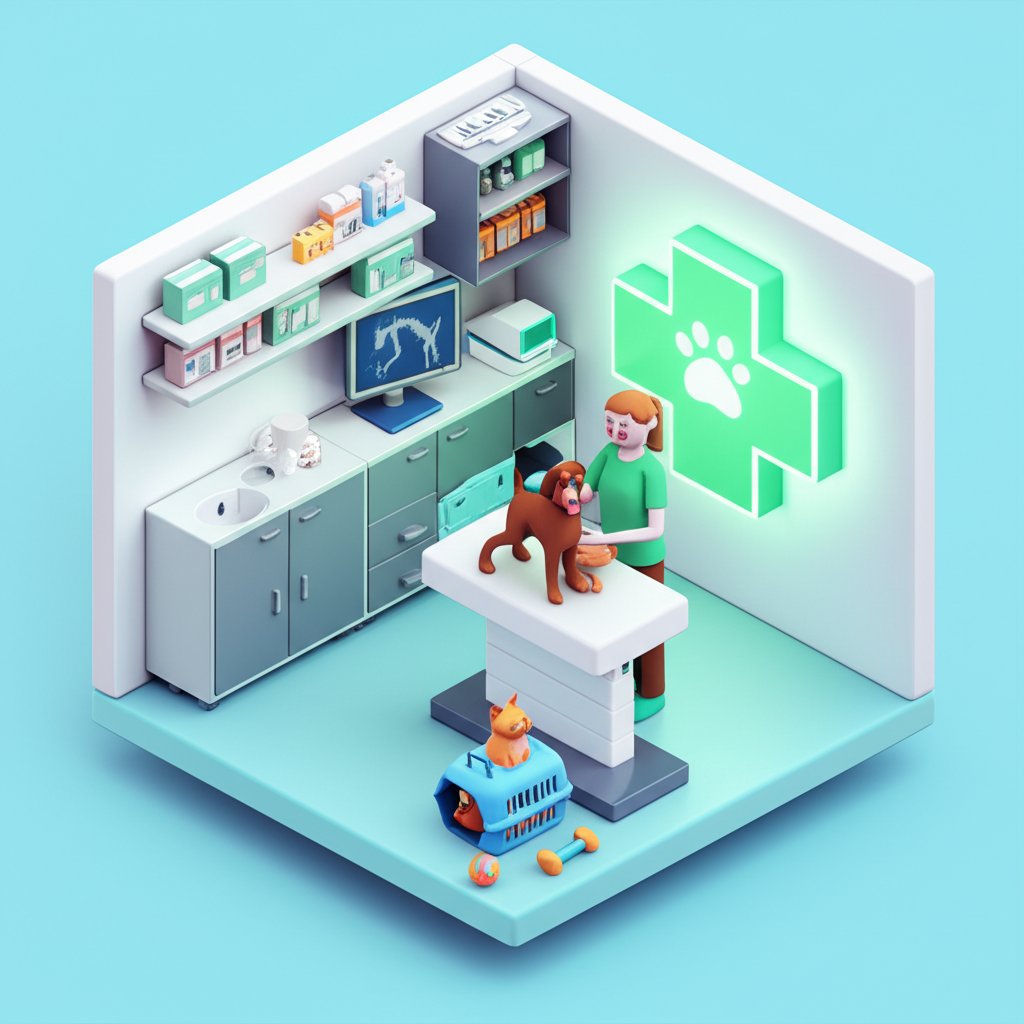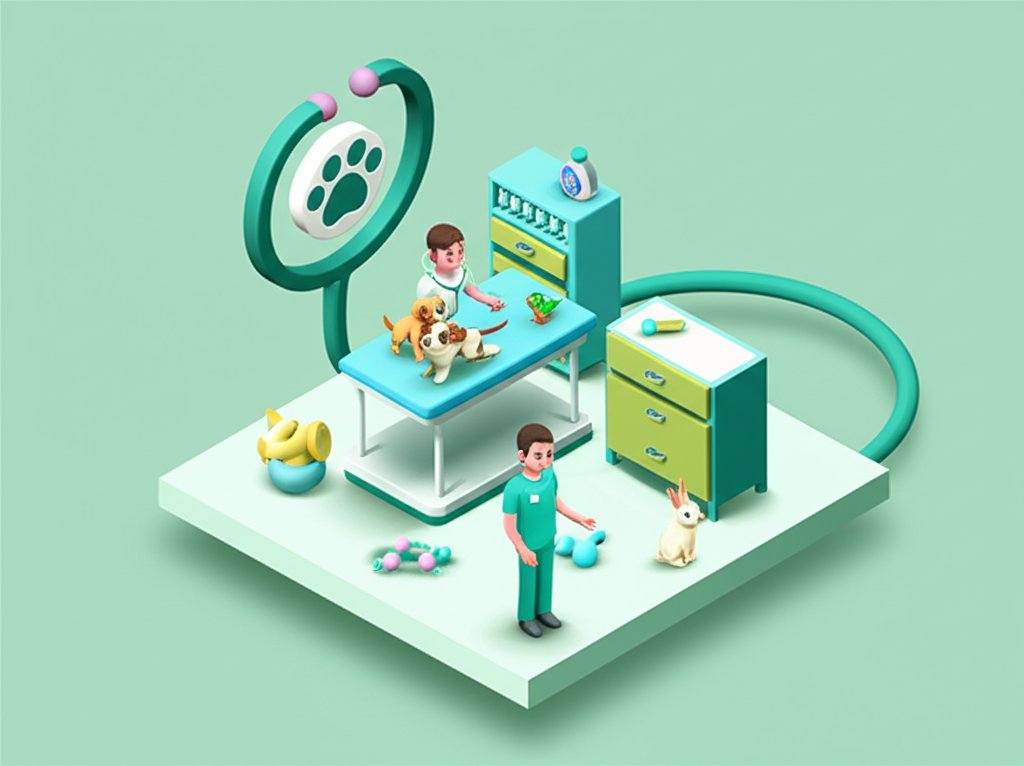Step into a world where compassion meets cutting-edge science, where the voiceless find their champions, and where health extends beyond human boundaries. This article will unveil incredible insights into the world of veterinarians, exploring the fascinating realm of veterinary medicine and its profound impact on animal healthcare. Get ready to discover Fun Facts About Veterinarians Day and gain a deeper appreciation for the dedicated professionals who commit their lives to animal care. Whether you’re a pet owner, an aspiring vet, or simply curious, prepare to have your mind blown by the extraordinary work these heroes perform daily.
The Ancient Roots of Veterinary Medicine: A Timeless Dedication to Animal Care
For a comprehensive overview of the modern role and responsibilities of these animal healthcare professionals, delve into our in-depth guide about what being a veterinarian truly entails, exploring the various facets of a veterinarian’s work.

The practice of medicine for animals is far from a modern invention. For millennia, humans have recognized the importance of healthy animals, not just for companionship but also for agriculture, transport, and protection. This deep-seated need laid the foundation for what we now know as veterinary medicine.
From Ancient Egypt to Modern Science
Evidence suggests that rudimentary forms of animal care existed in ancient civilizations. Egyptian hieroglyphs from as far back as 3000 BCE depict treatments for various domestic animal ailments, using herbal remedies and surgical techniques. The Ebers Papyrus, an ancient Egyptian medical text from around 1500 BCE, includes sections detailing treatments for animal diseases. Similarly, ancient Vedic texts from India (around 1500 BCE) also contain rich descriptions of animal health management. These historical records highlight a long and revered tradition of caring for animals, demonstrating that the role of veterinarians has been crucial for societies throughout history.
The Evolution of Veterinary Medicine
While ancient practices were often intertwined with religious beliefs and folk remedies, the scientific understanding of veterinary medicine began to solidify much later. The 18th century marked a turning point with the establishment of the first formal veterinary school in Lyon, France, in 1761. This institution, founded by Claude Bourgelat, aimed to combat cattle plagues, emphasizing the critical link between animal health and human prosperity. From these humble beginnings, the field rapidly expanded, driven by scientific advancements, the rise of specialized knowledge, and an increasing societal value placed on the well-being of all creatures, leading to today’s complex and diverse landscape of animal healthcare.
What Exactly Do Veterinarians Do? Beyond Fluffy Kittens
Many people envision veterinarians primarily as doctors for cats and dogs. While companion animal practice is a significant part of the profession, the scope of what veterinarians do is astonishingly vast, touching every aspect of animal healthcare and even impacting human health.
Diverse Roles in Animal Healthcare
The world of veterinary medicine is incredibly diverse, with specialists caring for species ranging from a tiny bird to majestic whales. Here’s a glimpse into the varied roles:
- Companion Animal Veterinarians: The most common role, focusing on pets like dogs, cats, birds, and small mammals. They provide preventive care, diagnostics, surgery, and emergency services, ensuring the health and longevity of our beloved family members.
- Large Animal Veterinarians: These
veterinarianswork with livestock (cattle, pigs, sheep, goats) and equine (horses). Their work is vital for food safety, agricultural productivity, and the welfare of farm animals. They often travel to farms, providing on-site care. - Exotic and Zoo Veterinarians: Specialists who care for non-traditional pets (reptiles, amphibians, exotic birds) and wild animals in zoos and aquariums. This demanding field requires vast knowledge of diverse species and their unique physiological needs.
- Wildlife Veterinarians: Working with wild populations, these
veterinariansfocus on conservation, disease monitoring, rehabilitation, and understanding the health of ecosystems. They might be involved in darting and tranquilizing wild animals for examination or treatment. - Public Health Veterinarians: These unsung heroes play a critical role in preventing diseases that can pass from animals to humans (zoonotic diseases). They work in food safety inspection, epidemiology, and research, safeguarding public health on a large scale.
- Research Veterinarians: Contributing to medical breakthroughs, these
veterinarianswork in laboratories, developing new treatments, vaccines, and diagnostic tools for both animal and human diseases. - Specialists: Like human medicine,
veterinary medicinehas specialists in cardiology, oncology, dermatology, ophthalmology, dentistry, surgery, internal medicine, and many more, offering advanced diagnostics and treatments.
The Rigorous Path to Becoming a Veterinarian
Becoming a veterinarian is an incredibly challenging and rewarding journey. It demands not only a deep love for animals but also a profound commitment to science, learning, and resilience.
- Pre-Veterinary Education: Aspiring veterinarians typically complete a bachelor’s degree, often in sciences like biology, chemistry, or animal science, focusing on rigorous coursework in biology, organic chemistry, physics, and sometimes advanced animal-related subjects.
- Doctor of Veterinary Medicine (DVM): This is the core of
veterinary medicineeducation, a demanding four-year professional program. Veterinary school curricula are comprehensive, covering anatomy, physiology, pharmacology, pathology, surgery, internal medicine, and public health for a wide array of species. Students engage in extensive laboratory work, clinical rotations, and hands-on training. - Internships and Residencies: Many
veterinarianspursue additional postgraduate training after their DVM. A one-year internship provides broad clinical experience, while a multi-year residency leads to board certification in a specialized field (e.g., veterinary surgery, internal medicine, oncology), requiring hundreds of additional hours of specialized training and rigorous examinations. - Licensure: All
veterinariansmust pass a national board examination and meet state-specific licensing requirements to practice.
This demanding educational path underscores the unparalleled expertise and dedication required to provide high-quality animal healthcare.
Celebrating Our Animal Heroes: Fun Facts About Veterinarians Day

Beyond their daily duties, veterinarians deserve special recognition for their tireless efforts and unwavering commitment. This is where Fun Facts About Veterinarians Day comes into play, offering a unique opportunity to honor these crucial professionals.
Understanding World Veterinary Day
World Veterinary Day is celebrated annually on the last Saturday of April. Established by the World Veterinary Association (WVA) in 2000, it’s a global event dedicated to highlighting and promoting the life-saving work performed by veterinarians worldwide. Each year, a specific theme is chosen to emphasize a particular aspect of veterinary medicine and its impact, such as zoonotic diseases, environmental protection, or food safety, underscoring the profession’s broad influence on global well-being. This day is a perfect occasion to share Fun Facts About Veterinarians Day and spread awareness.
Global Impact and Collaborative Efforts
The celebration of Veterinarians Day transcends borders, uniting professionals and communities in recognizing the global significance of animal healthcare. Veterinarians worldwide collaborate on initiatives like disease surveillance, vaccine development, and sustainable animal care practices. Their work ensures not only the health of individual animals but also contributes to global food security, public health, and environmental preservation – a true “One Health” approach.
Ways to Show Appreciation for Excellent Animal Care
Veterinarians Day offers a fantastic chance to show gratitude. Here are some meaningful ways to appreciate the veterinarians and support staff who provide exceptional animal care:
- A Simple Thank You: A heartfelt card, email, or a verbal thank you goes a long way.
- Positive Reviews: Share your positive experiences online, helping others find great
veterinarians. - Social Media Shout-Outs: Post about your positive experience with your vet clinic using relevant hashtags.
- Small Gifts: A coffee, healthy snacks, or a plant for their clinic are thoughtful gestures.
- Support Their Work: Donate to local animal shelters, veterinary aid funds, or organizations that support
veterinary medicineresearch. - Follow Health Advice: The best way to show appreciation is to be a responsible pet owner and follow your vet’s recommendations for preventive care.
Mind-Blowing Facts About Veterinarians and Veterinary Medicine
Beyond the daily appointments, the world of veterinarians is filled with astonishing facts that highlight their unique skills, historical contributions, and the dynamic nature of veterinary medicine.
Unsung Pioneers and Groundbreaking Innovations
- The term “veterinarian” originates from the Latin word “veterinae,” referring to working animals, indicating the profession’s ancient roots in caring for animals essential to human life.
- Did you know that veterinarians were instrumental in developing early anesthetics and surgical techniques, many of which influenced human medicine? Animal models and surgical innovations in
veterinary medicinehave historically paved the way for advancements in human healthcare. - The first female veterinarian in the United States, Dr. Elinor McGrath, graduated in 1910, a testament to the increasing inclusivity of the profession, which is now predominantly female in many countries.
- Many groundbreaking medical procedures, such as organ transplants and hip replacements, were first perfected in veterinary medicine before being widely adopted for humans.
The Incredible Breadth of Animal Healthcare
- Veterinarians in some parts of the world perform procedures on animals as large as elephants and as small as hamsters, requiring a vast and adaptable skill set.
- Beyond traditional pets,
veterinariansare also involved in aquaticanimal care, tending to fish in farms and aquariums, managing their health, and preventing disease outbreaks that could impact entire ecosystems or food supplies. - A significant portion of veterinary medicine focuses on preventive care, including vaccinations, parasite control, and nutritional counseling, which are crucial for maintaining long-term animal health and reducing the spread of diseases.
- The field of
veterinary medicineplays a hidden but vital role in sports. Equineveterinarians, for example, are critical to the performance and welfare of racehorses and other athletic animals, ensuring they are healthy and free from injury.
Surprising Demographics and Daily Challenges
- The average annual salary for a veterinarian varies greatly by specialization, location, and experience, but their expertise is highly valued, reflecting the extensive education and demands of the profession.
- Veterinarians face unique emotional challenges, including compassion fatigue and the ethical dilemmas surrounding end-of-life care. Their dedication often comes with significant personal sacrifice.
- The demand for animal healthcare continues to grow, fueled by increased pet ownership and a greater understanding of the human-animal bond, leading to a consistent need for skilled
veterinariansand support staff.
These Fun Facts About Veterinarians Day truly showcase the profound and often surprising impact of these dedicated professionals.
The Future of Animal Care: Innovations in Veterinary Medicine
The field of veterinary medicine is constantly evolving, driven by scientific advancements, technological innovations, and a deeper understanding of animal health and welfare. The future of animal care promises even more sophisticated treatments and proactive approaches.
Advancements in Diagnostic and Therapeutic Techniques
The landscape of animal healthcare is transforming rapidly, mirroring many advancements in human medicine.
- Advanced Imaging: Techniques like MRI, CT scans, and ultrasound are now commonplace, allowing veterinarians to diagnose complex conditions with unprecedented accuracy.
- Telemedicine: Remote consultations and monitoring are becoming more prevalent, especially for routine check-ups or managing chronic conditions, improving accessibility to animal care.
- Genetic Therapies: Research into genetic modifications and gene therapies holds promise for treating inherited diseases in animals.
- Regenerative Medicine: Stem cell therapy and other regenerative techniques are being used to treat orthopedic injuries, arthritis, and other degenerative conditions, offering new hope for improved quality of life.
- Artificial Intelligence: AI is beginning to assist
veterinariansin diagnostics, predicting disease outbreaks, and optimizing treatment plans.
One Health: Connecting Animal, Human, and Environmental Well-being
The “One Health” concept, which recognizes the interdependence of human health, animal health, and environmental health, is at the forefront of modern veterinary medicine. Veterinarians are crucial in this integrated approach:
- Zoonotic Disease Surveillance: Monitoring and controlling diseases that can jump between animals and humans (like rabies, avian flu, or even COVID-19 origins) is a cornerstone of their public health role.
- Environmental Protection:
Veterinarianscontribute to assessing environmental impacts on wildlife and domestic animals, playing a part in conservation efforts and ecosystem health. - Food Safety and Security: Ensuring the health of food-producing animals directly translates to safe food for human consumption and contributes to global food security.
The future of veterinary medicine will see veterinarians increasingly at the intersection of these critical areas, further cementing their indispensable role in global well-being.
Conclusion
The world of veterinarians is one of profound dedication, scientific rigor, and boundless compassion. From ancient healers to modern specialists, their commitment to animal healthcare has shaped our societies and continues to safeguard the well-being of creatures great and small. As we’ve explored the Fun Facts About Veterinarians Day and delved into the intricacies of veterinary medicine and animal care, it becomes clear that veterinarians are truly unsung heroes.
This Veterinarians Day, and every day, let’s take a moment to appreciate these remarkable individuals. Their expertise not only heals our beloved pets but also protects public health, ensures food safety, and champions the delicate balance of our ecosystems. Celebrate the incredible contributions of these professionals and recognize their mind-blowing impact on the world. They are indeed saving lives, one paw, hoof, fin, or feather at a time.
FAQ
Q: When is World Veterinary Day celebrated?
A: World Veterinary Day is celebrated annually on the last Saturday of April. While not an official “Fun Facts About Veterinarians Day” by name, it’s the dedicated global day to recognize veterinarians and their work.
Q: What is a Doctor of Veterinary Medicine (DVM) degree?
A: The Doctor of Veterinary Medicine (DVM) degree is the professional degree required to practice veterinary medicine. It typically involves a demanding four-year curriculum after undergraduate studies, covering a vast array of topics in animal healthcare.
Q: What types of animals do veterinarians treat?
A: Veterinarians treat an incredibly diverse range of animals, including companion animals (dogs, cats, birds, small mammals), livestock (cattle, horses, pigs, sheep), exotic pets (reptiles, amphibians), zoo animals, and wildlife. The specific animals treated depend on the veterinarian’s specialization.
Q: How do veterinarians contribute to public health?
A: Veterinarians play a crucial role in public health by monitoring and controlling zoonotic diseases (diseases transferable between animals and humans), ensuring food safety through inspection of animal products, and conducting research that benefits both animal health and human health.
Q: What are some challenges faced by veterinarians?
A: Veterinarians face numerous challenges, including the demanding and extensive education required, long and irregular hours, the emotional toll of dealing with sick or injured animals and sometimes difficult owner situations, and the constant need to stay updated with advancements in veterinary medicine.
Q: How can I show appreciation for my veterinarian?
A: Simple gestures like a thank-you card, a positive online review, a small gift for the clinic staff, or adhering to their health recommendations for your pet are all great ways to show appreciation for their dedication to animal care.










